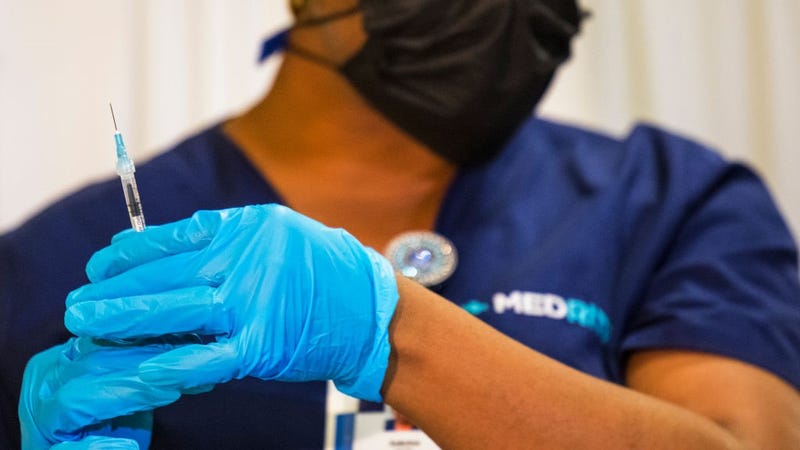
Last week, Pfizer and BioNTech delayed the emergency authorization request to the Food and Drug Administration for approval of their COVID-19 vaccine for children 6 months through 4-years-old until they had more data on a third dose.
Some experts are now praising Pfizer's decision to delay the vaccine for children under 5.
"The plan to have two doses be given while awaiting data on a third dose never made sense to me. You can’t just approve something and say it's safe and effective if you haven't seen the data," Dr. Lena Wen said.
Pfizer expects to have the data of a third dose for children in that age group by April.
"Given that the study is advancing at a rapid pace, the companies will wait for the three-dose data as Pfizer and BioNTech continue to believe it may provide a higher level of protection in this age group," Pfizer said in a statement.
Dr. Nina Radcliff told The National Desk that many parents are ready to get their young children vaccinated, but it's worth the wait for data to emerge from the ongoing trials.
"Pfizer announced that the ongoing rolling clinical study would evaluate a third dose at least two months after the second dose of the two-dose series in this age group," Radcliff said. "Additionally, because cases continue to accumulate among the vaccinated and unvaccinated, especially due to the recent omicron surge, the data is changing and helping us to understand better."
She added that giving a third dose in trials will allow for doctors to better understand the vaccine's effectiveness with the young age group.
"This is very important for patients, for pediatricians and healthcare professionals to make recommendations, not only that are safe, but also what level of protection are we seeing," Radcliff said.
Radcliff then pointed out how important research is in the trial stages, following a new study published by the Centers for Disease Control and Prevention on Friday that said the effectiveness of a booster shot decreases after four months.
"Based on an early report and limited look at the durability of booster shots during the recent omicron wave in the U.S., there was a decline in the effectiveness against severe cases, though the shots still offered strong protection against hospitalizations," Radcliff said.
"The results are based on a small number of patients, fewer than I think just 200, who had been boosted four months earlier at the time of the omicron wave. It’s unclear if those people had gotten boosters early for medical reasons that may have made them more vulnerable to severe illness."
There are 18 million children between the ages of 6 months through 4 years that would be eligible to receive the Pfizer-BioNTech COVID-19 vaccine once it's approved.
White House COVID-19 response coordinator Jeff Zients said last week before the delay that there is enough doses for all 18 million children, and the government is prepared to begin shipping the vaccines as soon as the FDA authorizes it.
"We’re working closely with pediatricians and family doctors and children’s hospitals and pharmacies to make sure the vaccine is available at thousands of locations across the country locations that parents know and trust," Zients said.



